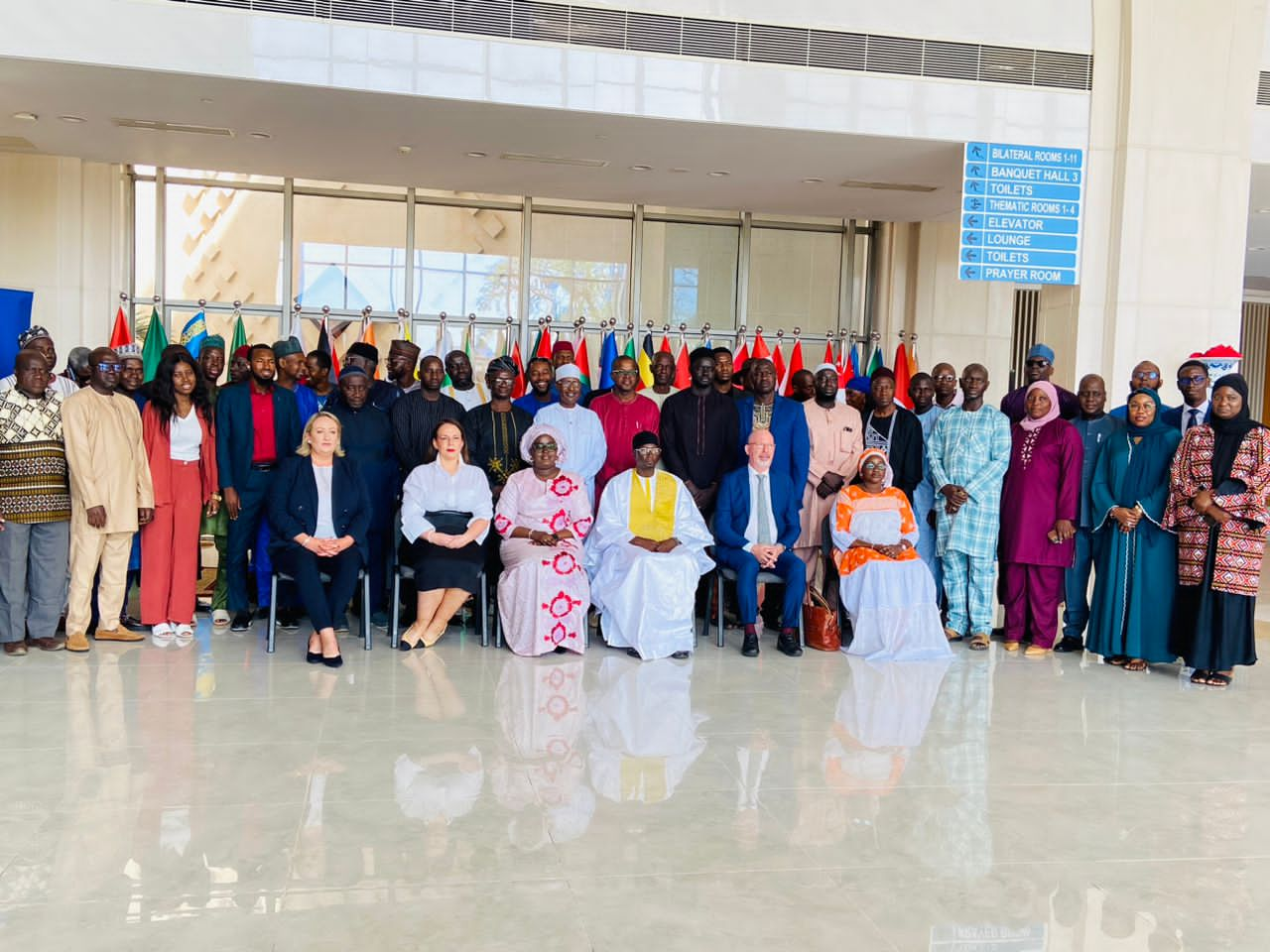
Honourable Seedy SK Njie, the Deputy Speaker of the National Assembly, officially opened a 3-day refresher training on ethics in constitutional and legislative processes for the National Assembly Members of The Gambia at the Sir Dawda Kairaba Jawara International Conference Centre, Bijilo on Thursday, the 30th of May. The event was organized by international IDEA with support from the European Union. During the training, the Deputy Speaker mentioned that they would consider and validate the Code of Conduct for National Assembly Members and aim to table it for consideration and approval during the Second Ordinary Session. This would be a significant achievement for the Sixth Legislature as there has never been a formally approved Code of Conduct for Members of the National Assembly of The Gambia, which is essential for every democratic Parliament. Honourable Njie emphasized the importance of public accountability and the political credibility of Parliaments in constitutional and legislative processes. He pointed out that the regulation of parliamentary behaviour and ethics standards is crucial for securing public trust in the efficacy, transparency, and equity of democratic systems and fostering a culture of public service that prioritizes public interest over private gains. Maintaining citizens’ trust is crucial for democratic governance, stable political life, and public administration. Honourable Njie stressed that Parliamentarians should demonstrate high standards of ethics, especially when scrutinizing the executive arm of government, as good conduct builds trust and helps legitimize Parliaments and democratic systems. He also expressed gratitude to International IDEA for facilitating the engagement and to the European Union for their financial and material support. Additionally, he thanked colleagues from the Irish Parliament for their guidance during the engagement.
international IDEA organised the event with support from the European Union.
“In the course of the three days, we will also consider and validate the Code of Conduct for National Assembly Members with a view to table it for our consideration and approval during the Second Ordinary Session. The Deputy Speaker said this will be a milestone achievement for the Sixth Legislature, the fact that there has never been a formally approved Code of Conduct for Members of the National Assembly of The Gambia, which is necessary for every democratic Parliament.
Honourable Njie added that the engagement is useful for the NAMS noting that public accountability and political credibility of Parliaments are cornerstone principles, particularly in constitutional and legislative processes, to which all democratic States subscribe. He points out that the regulation of parliamentary behaviour and ethics standards is an essential element to secure public trust in the efficacy, transparency, and equity of democratic systems and foster a culture of public service that favours public interest over private gains.
“Clearly, maintaining a certain level of citizens’ trust is an essential ingredient for democratic governance, stable political life, and public administration. Not only is the maintenance of citizen trust of paramount importance for preserving the legitimacy and stability of a democratic regime, but it also enables political leadership to promote social cooperation, obtain citizen compliance or commit resources for collective action without coercion and to create the environment that political leaders need to succeed.”
The Deputy Speaker said it’s important for Parliamentarians to demonstrate high standards of ethics consistent with their important public interest roles, especially when scrutinising the executive arm of government. He added that good conduct is also crucial because it builds trust.
“When there are trusting relationships between the people, Parliament and other institutions, democracy works at its best. When people trust that their elected representatives are acting in their best interests, this helps legitimize our Parliaments and our democratic systems. Essentially, good conduct is fundamental to the effectiveness of Parliament in fulfilling its core roles of legislating, approving budgets, scrutinizing the executive, and representing the public interest.”
Honourable Njie highlighted that It is against this backdrop that his office solicits the support from International IDEA to conduct this convergence under the CODE project while expressing optimism that NAMS will find the engagement worthy in their drive to make the National Assembly an institution that commends high public respect and trust.
‘“Allow me at this juncture to profoundly tank International IDEA for facilitating this engagement and the European Union for the financial and material support. Our appreciation also goes to our colleagues from the Irish Parliament, who shall guide us through the process in the course of this engagement. “




